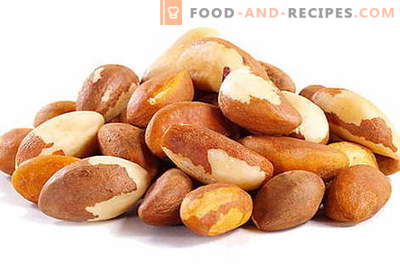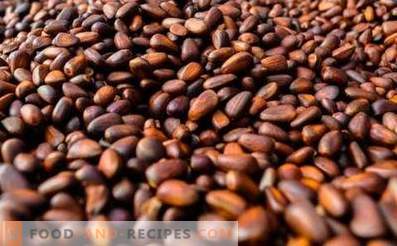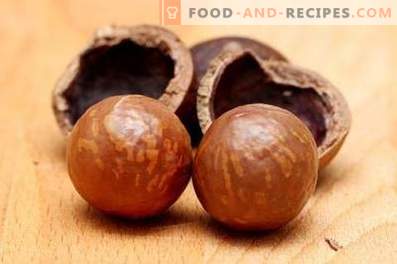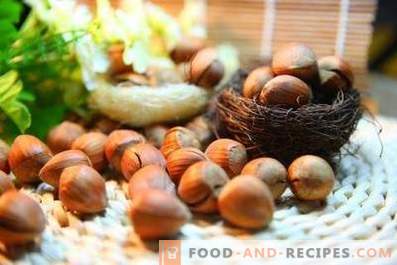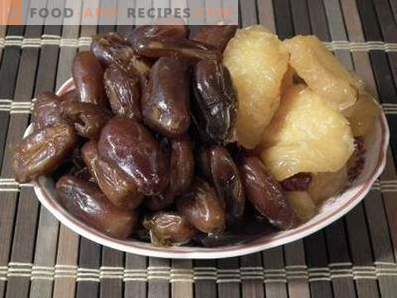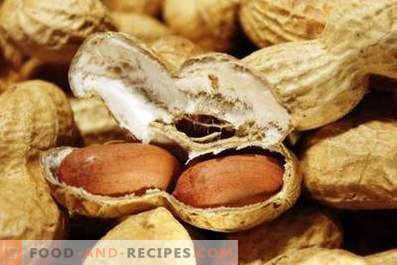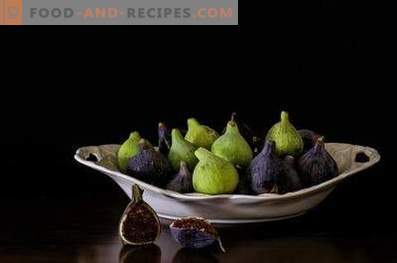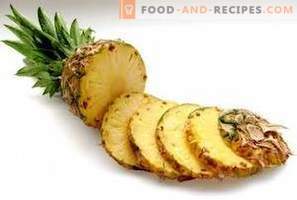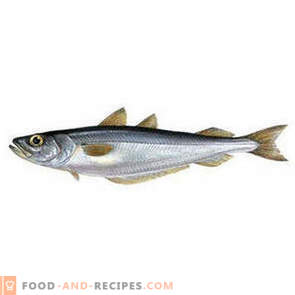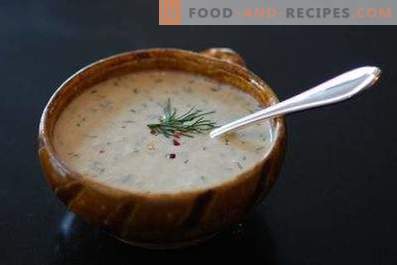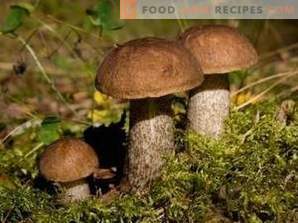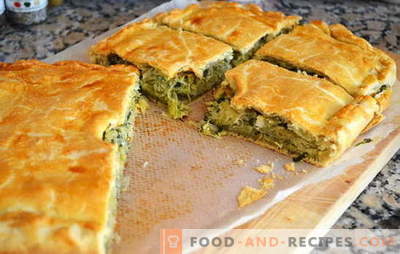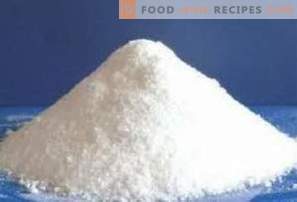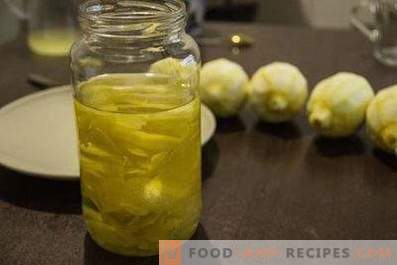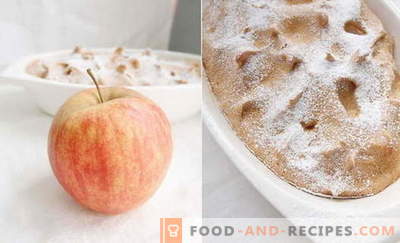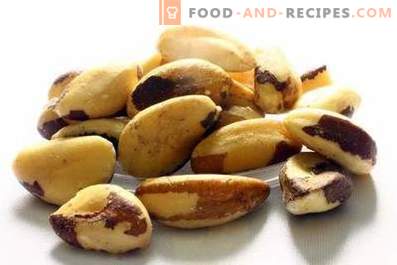
Brazil nuts are the fruits of high bertolet (Bertholletia excelsa), a tree that is the only member of the Lecithis family and grows in the primary forests of the Amazonia (in Bolivia, Brazil, Peru). Nuts intended for delivery to the international market are harvested only from wild-growing trees (plantations are considered low-productivity and disadvantageous due to the absence in places inhabited by humans of a sufficient number of large bees, which are the natural pollinators of this plant). This is how the program is implemented, which allows to receive income from wild tropical forests without destroying them.
Bertoletiya is a tree up to 45 meters high. The straight stem of the plant, covered with smooth gray bark, can reach 200 centimeters in diameter. The large spherical crown of a bertoletia is formed by long branches located in the upper part of the trunk. Green elongated leaves of the plant, having a smooth or jagged edge, can reach 35 cm in length and 16 cm in width. Small pale green flowers of the Brazil nut form panicles up to 100 mm long.
Bertoletiya fruits are large boxes with a hard tree-like coat having a diameter of up to 16 cm and a weight of up to 2.3 kg. In each such box you can find from 8 to 24 grains of a triangular shape, reaching 50 mm in length. Fully ripening takes at least 14 months.
Fresh brazil nuts have a pleasant aroma and break open with a slight crunch. A wrinkled surface covered with bloom and an unpleasant rancid smell are signs of spoilage. Store Brazil nuts in a tight-fitting container in a cool place, protected from light and moisture (for example, in the refrigerator). In such conditions, the fruits of helicopters retain their properties for up to 3 months. Brazil nuts are eaten raw, roasted, sprinkled with sugar or salt. In addition, they are used for the manufacture of oils used in food, medical and industrial purposes (for the manufacture of perfumes, paints, for lubrication of moving parts of mechanisms, etc.).
Nutritional value of bertoletia fruits and vitamins in their composition
Nutritional value of brazil nuts (per 100 g):
- 14, 296 g of proteins;
- 67, 319 g of fat;
- 12, 416 g of carbohydrates;
- 7, 491 g of edible insoluble fiber;
- 3, 476 g of water;
- 3, 499 g of ash;
- 2, 341 g of sucrose;
- 0, 248 g of starch and dextrins;
- 2, 341 g of monosaccharides, disaccharides;
- 0, 016 g of omega-3 fatty acids;
- 20, 571 g of omega-6 fatty acids;
- 15, 138 g of saturated fatty acids;
- 24, 547 g of monounsaturated fatty acids;
- 20, 569 g of polyunsaturated fatty acids.
Vitamins in Brazil nuts (per 100 g):
- 21, 987 μg of folates (B9);
- 0, 183 mg of pantothenic acid (B5);
- 0, 694 mg of ascorbic acid (C);
- 0, 616 mg of thiamine (B1);
- 5, 724 mg of tocopherol equivalent, alpha-tocopherol (E);
- 29, 112 mg of choline (B4);
- 0, 391 mg betaine;
- 034 mg of riboflavin (B2);
- 0, 294 mg of niacin equivalent (PP);
- 0, 099 mg of pyridoxine (B6).
Caloric value of a Brazil nut
Brazil nuts and dishes prepared on its basis are characterized by high energy value.
- The calorie content of Brazil nuts (per 100 g) is 657, 897 kcal.
- The energy value of 1 fruit (average weight - 6 g) - 39, 474 kcal.
- Caloric value of 100 g of Brazil nut oil - 897, 661 kcal.
Useful Items in Brazil Nuts
Trace elements in Brazil nuts (per 100 g):
- 1916, 612 μg of selenium;
- 1, 221 mg of manganese;
- 2, 421 mg of iron;
- 4, 058 mg of zinc;
- 1742, 007 μg of copper.
Macroelements in Brazil nuts (per 100 g):
- 724, 144 mg of phosphorus;
- 658, 814 mg of potassium;
- 2, 991 mg of sodium;
- 377, 101 mg of magnesium;
- 159, 948 mg of calcium.
Useful properties of brazil nuts
- Useful substances present in the kernels of Brazil nuts, have a tonic effect, help the body recover from prolonged illness and injury.
- Fruits of high botanyles are the richest food source of selenium. Research results indicate that their consumption in food contributes to reducing the risk of developing cancer in the tissues of the prostate, intestines and chest.
- Substances present in Brazil nuts protect cells from the negative effects of free radicals, slowing down the processes associated with aging of the body.
- Vitamins and other beneficial compounds that Brazil nuts are rich in help to strengthen the body's immune forces, increase resistance to parasitic, bacterial infections and viruses.
- As part of the fruit of bertoletii there is a whole complex of compounds with anti-inflammatory effect. Nutritionists and traditional healers strongly recommend that individuals who have identified inflammatory pathologies regularly include them in their diet.
- Daily consumption of Brazil nuts leads to the normalization of hormonal levels. Substances in their composition take part in the processes of thyroid hormone synthesis, prevent the development of endocrine system malfunctions, and have a positive effect on the pancreas.
- Useful compounds present in Brazil nuts contribute to the elimination of toxins, heavy metals and other harmful substances from the body. It has also been proven that including them in the diet during long-term drug therapy can reduce the toxicity of some drugs and prevent the side effects of taking them.
- Bertoletii fruits contain compounds that positively affect the work of the male and female reproductive system. According to nutritionists, their regular consumption contributes to an increase in libido and sexual activity, the prevention of male infertility, and the prolongation of the child-bearing age in women.
- As part of the Brazil nuts there are substances that strengthen the walls of blood vessels and help remove excess cholesterol from the body. Eating them daily can significantly reduce the risk of atherosclerosis and other cardiac pathologies.
- Consumption of Brazil nuts helps to improve visual acuity, prevents the development of cataracts and other disorders in the work of the visual apparatus.
- The substances present in the fruits of a bertoletia accelerate metabolic processes, help to normalize the concentration of sugars in the blood.
- When Brazilian nuts are included in the diet of a pregnant woman, the risk of fetal abnormal development in the fetus is significantly reduced.
- Daily consumption of Brazil nuts in food has a positive effect on the condition of the skin, nails and hair.
Contraindications and harm to Brazil nuts
- Brazil nuts are a high-calorie product. Abuse of bertoleti fruits may contribute to the appearance of excess weight.
- A significant amount of aflatoxins, harmful substances that can cause cancer in the liver, is present in the shell of Brazil nuts.
- Bertoletii fruits actively accumulate radium. The content of this radioactive substance in their nuclei can reach 250 Bq / kg. For this reason, nutritionists recommend limiting the consumption of Brazil nuts to 2-3 pieces per day.
- Brazil nuts are a widespread allergen. The presence of individual intolerance is an absolute contraindication to the consumption of the fruits of bertolettia in food. People who are allergic to other nuts should be wary of including Brazil nuts in their diet. Similar caution should be exercised by allergies, suffering from individual intolerance to mangoes (scientists have found a direct relationship between the occurrence of allergic reactions to mangoes and bertolettia).
